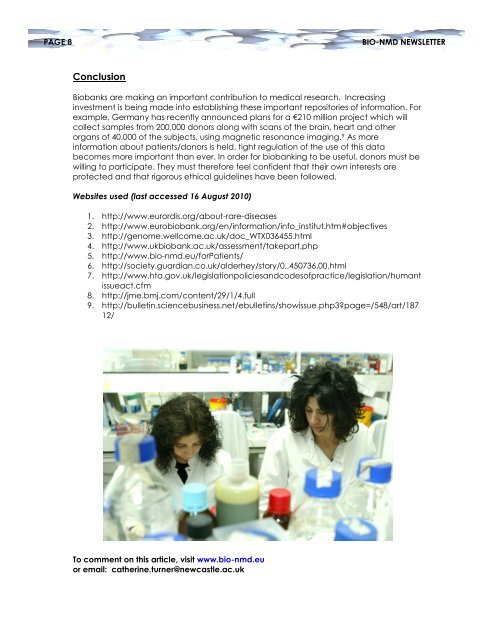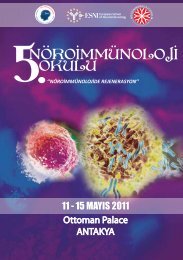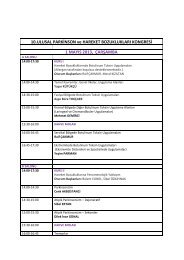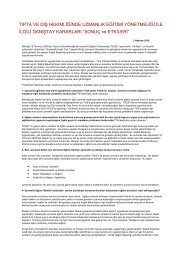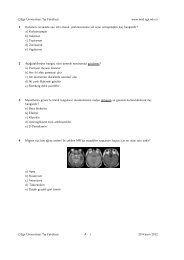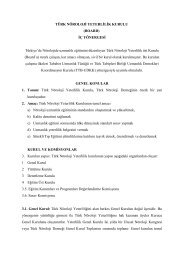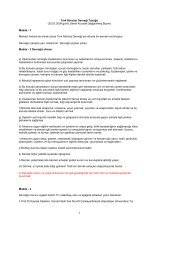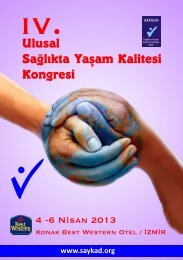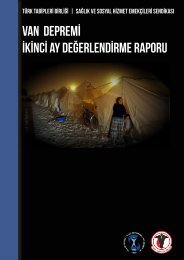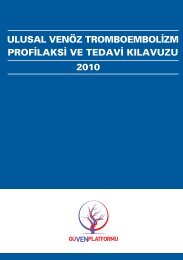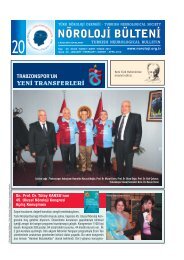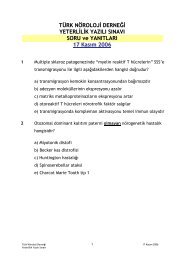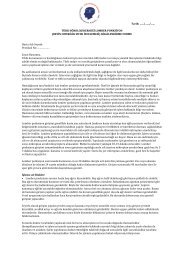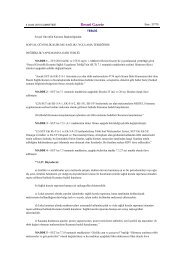BIO-NMD newsletter
BIO-NMD newsletter
BIO-NMD newsletter
You also want an ePaper? Increase the reach of your titles
YUMPU automatically turns print PDFs into web optimized ePapers that Google loves.
PAGE 8<strong>BIO</strong>-<strong>NMD</strong> NEWSLETTERConclusionBiobanks are making an important contribution to medical research. Increasinginvestment is being made into establishing these important repositories of information. Forexample, Germany has recently announced plans for a €210 million project which willcollect samples from 200,000 donors along with scans of the brain, heart and otherorgans of 40,000 of the subjects, using magnetic resonance imaging. 9 As moreinformation about patients/donors is held, tight regulation of the use of this databecomes more important than ever. In order for biobanking to be useful, donors must bewilling to participate. They must therefore feel confident that their own interests areprotected and that rigorous ethical guidelines have been followed.Websites used (last accessed 16 August 2010)1. http://www.eurordis.org/about-rare-diseases2. http://www.eurobiobank.org/en/information/info_institut.htm#objectives3. http://genome.wellcome.ac.uk/doc_WTX036455.html4. http://www.ukbiobank.ac.uk/assessment/takepart.php5. http://www.bio-nmd.eu/forPatients/6. http://society.guardian.co.uk/alderhey/story/0,,450736,00.html7. http://www.hta.gov.uk/legislationpoliciesandcodesofpractice/legislation/humantissueact.cfm8. http://jme.bmj.com/content/29/1/4.full9. http://bulletin.sciencebusiness.net/ebulletins/showissue.php3?page=/548/art/18712/To comment on this article, visit www.bio-nmd.euor email: catherine.turner@newcastle.ac.uk


